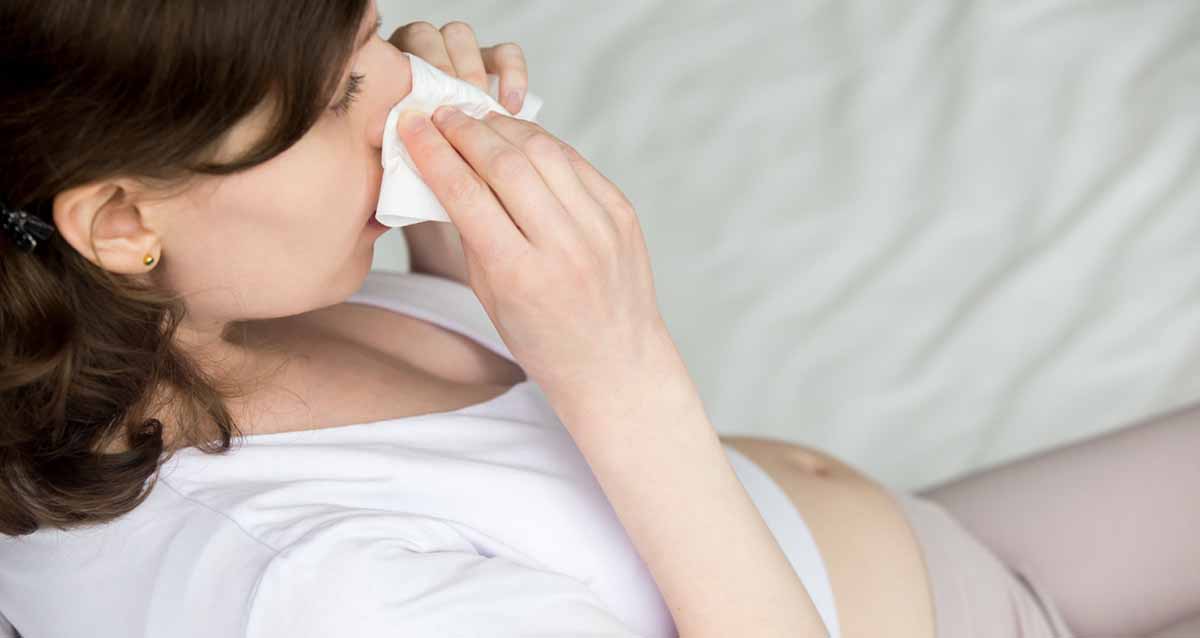Allergies are a common problem that affects many people worldwide. However, for pregnant women, the stakes are much higher. Pregnancy is a delicate period that requires utmost care and caution, and taking any medication without proper guidance can have severe consequences. As expectant mothers, the health and well-being of both the mother and the baby are paramount. Allergies can cause discomfort, fatigue, and in severe cases, even complications during pregnancy. That’s why it’s essential to consult a healthcare professional like Dr. Jasdeep Sidana to determine the best allergy medication options during pregnancy.
Common Allergy Symptoms During Pregnancy
Allergy symptoms during pregnancy can vary from person to person, but some of the most common symptoms include the following:
- Sneezing
- Runny or stuffy nose
- Itchy eyes, nose, or throat
- Coughing
- Skin rashes or hives
- Shortness of breath
- Headaches
- Fatigue
It’s worth noting that during pregnancy, allergy symptoms can be more severe than usual due to changes in the immune system. Therefore, it is essential to manage allergies effectively to avoid any potential complications.
Allergy Medications to Avoid During Pregnancy
Unfortunately, not all allergy medications are safe for pregnant women. In addition, some medications can cause adverse effects on the mother and the fetus, leading to potential complications. Dr. Jasdeep Sidana advises expectant mothers to avoid medications such as decongestants and antihistamines.
These medications can cause increased blood pressure, drowsiness, and even congenital disabilities in the fetus. Of course, it’s always best to consult your healthcare provider before taking any medication during pregnancy to determine the best medication for your particular needs and situation.
Allergy Medications You Can Take While Pregnant

Some allergy medications, such as loratadine, cetirizine, and fexofenadine, can be taken safely during pregnancy. However, Dr. Jasdeep Sidana recommends discussing potential risks and side effects with your healthcare provider before starting any new medication during pregnancy.
In addition to medications, you can make lifestyle changes to help ease allergy symptoms during pregnancy. These include avoiding allergens in the home, keeping windows and doors closed to avoid exposure to pollen, and wearing a face mask when going outside.
Natural Remedies for Allergies During Pregnancy
Natural remedies can be a safe and effective way for expectant mothers to alleviate allergy symptoms during pregnancy. Here are some natural remedies that Dr. Jasdeep Sidana recommends for pregnant women:
- Steam Inhalation: Steam inhalation can help alleviate nasal congestion and reduce inflammation. Boil water and pour it into a bowl, then place a towel over your head and inhale the steam.
- Saline Nasal Sprays: Saline nasal sprays are a safe and natural way to relieve nasal congestion. These sprays contain a saltwater solution that helps flush out allergens and mucus from the nasal passages.
- Humidifiers: Using a humidifier in your home can help alleviate dry nasal passages and reduce the severity of allergy symptoms. Humidifiers add moisture to the air, which can help ease breathing.
- Nasal Rinsing: Nasal rinsing involves flushing the nasal passages with a saline solution. This can help remove allergens and mucus from the nose, reducing inflammation and congestion.
- Quercetin: Quercetin is a natural antihistamine that can help alleviate allergy symptoms. It is found in many fruits and vegetables, such as onions, apples, and berries. However, pregnant women should consult their doctor before taking any supplements.
- Neti Pot: A neti pot is a small pot used to rinse the nasal passages with a saline solution. This can help alleviate congestion and reduce inflammation.
It is essential to note that while natural remedies are generally safe, some may not be suitable for all pregnant women. Therefore, it is essential to consult with a healthcare provider, such as Dr. Jasdeep Sidana, before trying new remedies or supplements to ensure they are safe and effective for both the mother and the fetus.
Tips for Managing Allergies During Pregnancy

Managing allergies during pregnancy can be challenging, but there are several proactive steps that expectant mothers can take to minimize their exposure to allergens and reduce their symptoms. Here are some tips for managing allergies during pregnancy recommended by Dr. Jasdeep Sidana:
- Avoid Allergens: The best way to manage allergies during pregnancy is to avoid allergens as much as possible. For example, if pollen triggers your allergies, staying indoors on days with high pollen counts is best. If dust mites are an issue, wash your bedding frequently and consider using allergy-proof covers on your mattress and pillows.
- Keep Your Home Clean: Regular cleaning can help reduce exposure to allergens. Use a vacuum with a HEPA filter to clean carpets and rugs, and dust with a damp cloth to avoid spreading allergens.
- Keep Pets Out of the Bedroom: If you have pets, it’s best to keep them out of the bedroom. Pet dander can trigger allergies and make symptoms worse, so it’s best to keep pets in another room.
- Practice Good Hygiene: Washing your hands frequently can help reduce exposure to allergens. It’s also important to avoid touching your face, as this can transfer allergens from your hands to your nose and eyes.
- Use Safe Medications: Some allergy medications are safe during pregnancy, such as nasal corticosteroids, saline nasal sprays, and Cromolyn Sodium. However, it’s essential to consult with your healthcare provider, such as Dr. Jasdeep Sidana, before taking any medication during pregnancy.
- Stay Hydrated: Drinking plenty of water can help reduce inflammation and alleviate allergy symptoms. It’s recommended that pregnant women drink at least eight glasses of water per day.
- Get Adequate Rest: Getting enough rest is vital for managing allergies during pregnancy. Fatigue can worsen allergy symptoms, so getting adequate sleep and rest when needed is crucial.
By taking these proactive steps, expectant mothers can effectively manage their allergies during pregnancy and reduce their symptoms. However, it’s essential to consult with a healthcare provider, such as Dr. Jasdeep Sidana, before trying new remedies or medications to ensure they are safe for both the mother and the fetus.
Conclusion
Allergies during pregnancy can cause discomfort and affect the quality of life of expectant mothers. However, with the guidance of a medical professional such as Dr. Jasdeep Sidana, pregnant women can safely manage their allergy symptoms. One way to do this is to avoid allergy medications that can cause adverse effects on the mother and the fetus and to use safe medications and natural remedies to alleviate allergy symptoms.
Dr.Jasdeep Sidana also emphasizes the importance of consulting with your respective OB /GYN or healthcare provider before taking any medication during pregnancy to determine the best medication for your particular needs and situation. In addition, taking proactive steps such as avoiding allergens, practicing good hygiene, and using natural remedies can help reduce allergy symptoms. Expectant mothers can have a healthy and comfortable pregnancy with proactive steps to manage allergies.


